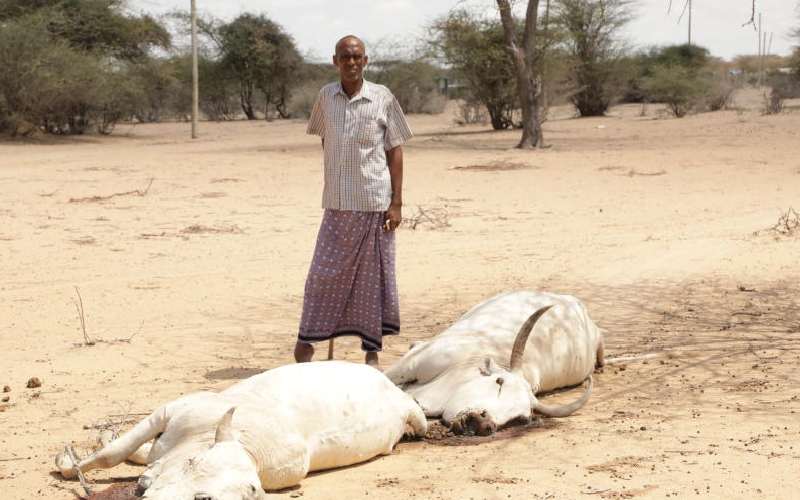×
The Standard e-Paper
Kenya’s Boldest Voice

Omar Aden Qassim stands in between carcasses of his dead livestock in Liboi sub-county in Garissa. [File, Standard]
President Uhuru Kenyatta has challenged fellow world leaders to pursue climate change adaptation and mitigation measures to secure people’s livelihoods and expand economic opportunities. He was emphatic that sustainable climate action is largely about people and their livelihoods adding that no one should be left behind in efforts to combat climate change.







